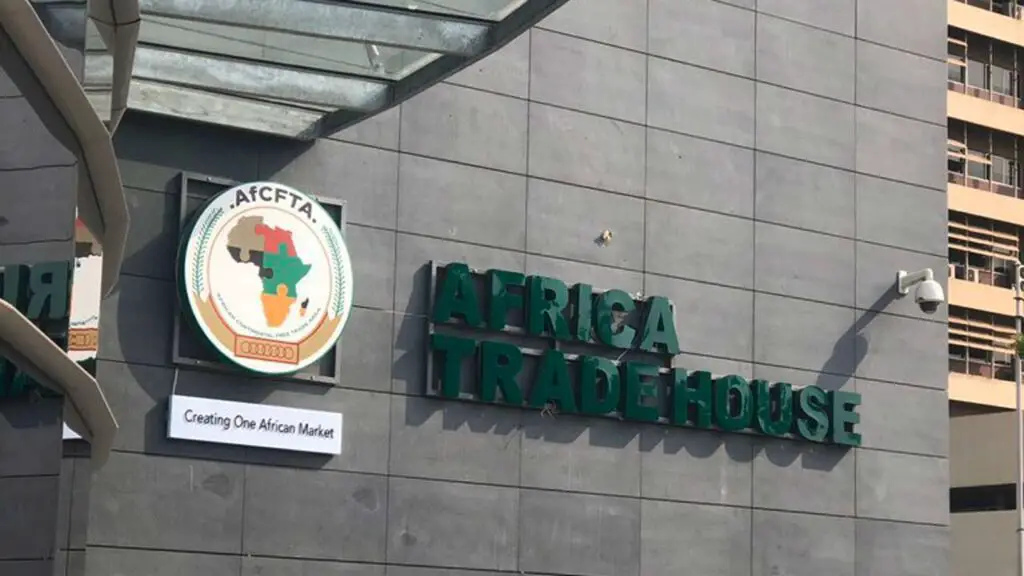- The Arab Africa Trade Bridges Program (AATB), a multi-donor, inter-regional program, has signed two agreements aimed at fostering sustainable growth and development on the sidelines of the Intra Africa Trade Fair 2023 in Cairo, Egypt.
- The first agreement aims to harmonize African standards for textiles and leather products, ensuring transformative change in the African Fashion Industry.
- In the second deal, the International Islamic Trade Finance Corporation signed a deal with the International Trade Centre, under the umbrella of the AATB program. This marks the initiation of Phase Two for the transformative “How to Export with the AfCFTA” Program, developed collaboratively with Afreximbank.
The Arab Africa Trade Bridges Program (AATB), a multi-donor, inter-regional program, has signed two agreements aimed at fostering sustainable growth and development on the sidelines of the Intra Africa Trade Fair 2023 in Cairo, Egypt.
The first agreement was signed between the AATB Program Secretary General, Hani Salem, and the General Secretary of the African Organisation For Standardisation (ARSO), Hermogene Nsengimana. This agreement aims to harmonize African standards for textiles and leather products, ensuring transformative change in the African Fashion Industry.
Arab Africa Trade Bridges Program (AATB) role in fostering trade
The grant agreement also reinforces AATB’s commitment to fostering trade development and quality enhancement in Africa, building on the success of the recent harmonization of the pharmaceutical and medical device standards initiative. Both harmonization initiatives are aligned with the objectives of the African Continental Free Trade Area (AfCFTA) agreement.
The International Islamic Trade Finance Corporation (ITFC) also signed a Partnership Agreement with the International Trade Centre (ITC), under the umbrella of the AATB program, marking the initiation of Phase Two for the transformative “How to Export with the AfCFTA” Program, developed collaboratively with Afreximbank.
The training program, set to directly benefit several African countries, namely Benin, Cameroon, Senegal, and Togo, will share the fundamentals of exporting within the framework of intra-African trade.
The program’s primary objective is to raise awareness regarding the technical aspects and potential opportunities arising from the AfCFTA agreement. By participating in this training, enterprises will learn to evaluate their standing concerning new trading opportunities and be equipped to strategize and make informed decisions on how best to leverage the benefits presented by the AfCFTA agreement.
This partnership agreement was signed by Hani Salem Sonbol, the CEO of ITFC, Acting CEO of ICD, and Secretary General of the AATB Program, and Pamela Coke-Hamilton, Executive Director of ITC.
As large and small businesses are pivotal to Africa’s economic growth and structural transformation, these agreements play a strategic role in bolstering the AATB program’s influence in promoting trade and investment development to drive positive economic impact across the continent.
The AATB Program is a multi-donor, multi-country, and multi-organizations program supported by the African Export-Import Bank (Afreximbank), Arab Bank for Economic Development in Africa (BADEA), Islamic Development Bank, The International Islamic Trade Finance Corporation (ITFC), The Islamic Corporation for the Insurance of Investment and Export Credit (ICIEC), The Islamic Corporation for The Development of The Private Sector (ICD), and The OPEC Fund for International Development.
Read also: Enhancing intra-African trade will heighten economic recovery and promote food security
Investment flows between African and Arab OIC Member Countries
The Program aims to promote and increase trade and investment flows between African and Arab OIC Member Countries, provide and support trade finance and export credit insurance, and enhance existing capacity-building tools related to trade.
The Program specifically focuses on supporting key sectors such as agriculture and related industries, including textiles; the health industry, including pharmaceuticals; infrastructure and transport; and petrochemicals, construction materials, and technology.
According to the OIC Investment Outlook 2023 report, despite the growth in investments, the share of Organisation of Islamic Corporation (OIC) countries in global investments has not increased sufficiently in recent years.
In 2019, OIC countries accounted for 12.2 per cent of global public investments (up from 9.2 per cent in 2000) and 12.5 per cent of global capital stocks (up from 11.6 per cent in 2000). Within the OIC group, the top five OIC countries accounted for 58.3 per cent of total public investment during 2010-19, with Saudi Arabia ranking first with a 22.7 per cent share of total public investments within the OIC group. Similarly, the share of OIC countries in total global private investments increased from 9.7 per cent in 2000 to 12.3 per cent in 2019.
During 2010-19, three OIC countries collectively accounted for 55.8 per cent of total private investments in the OIC region, namely Indonesia (27.6 per cent), Turkey (19.7 per cent), and Saudi Arabia (8.5 per cent), demonstrating a significant concentration of private investments in a few OIC countries.
